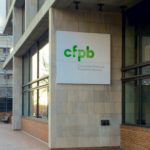The California Department of Financial Protection and Innovation yesterday announced enforcement actions against four unlicensed collection operations as part of the DFPI’s “yearlong crackdown on unscrupulous debt collectors.”
Copies of the actions against Centennial Services, Bellgate Associates, Moss Westinghouse and Associates, and Prodigy Portfolio Management can be accessed by clicking here, here, and here.
In terms of fines, Centennial was ordered to pay $12,500, Bellgate Associates $30,000, Moss Westinghouse and Associates $37,500, and Prodigy Portfolio Management $7,500. Each of the companies was also ordered to cease and desist from engaging in unlawful and deceptive practices, such as:
- Failing to identify themselves as debt collectors.
- Making false and misleading statements about payment requirements.
- Threatening unlawful action because of nonpayment of a debt.
- Contacting the consumer at a prohibited time of day.
- Making false claims of pending lawsuits or legal process.
- Making false claims about the character, amount, or legal status of the debt.
- Failing to provide a “validation notice” as required by federal law.
- Threatening to sue on time-barred debt in violation of federal regulations.
With respect to each of the enforcement orders, only one or two consumers were affected. More problematic for each of the companies — none of them were licensed or had applied for a license under the state’s Debt Collection Licensing Act, which means that each of the companies were attempting to collect debts in California without the proper license to do so.
The summary backgrounds in each of the orders read like many of those you have likely read over the years where unscrupulous collectors try to pressure and coerce borrowers into making payments. From the Moss Westinghouse action, a consumer sought validation for a debt and was purportedly told that he could either accept and pay a settlement offer right then without paperwork or be served with legal paperwork and have to pay the full amount owed, plus attorney’s fees and court costs. Yet until the consumer ultimately paid the settlement amount — five months later — no lawsuit was ever filed.








